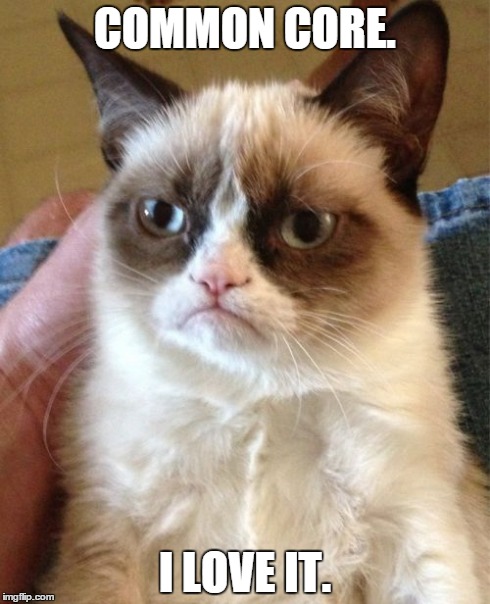What the Data Actually Says About Shifting Views on the Common Core

There've been a lot of claims made of late about what Americans think of the Common Core. The back-and-forth features a lot of push polls and agenda-driven analysis. As oneWashington Post headline proclaimed earlier this year, "Conservatives hate Common Core. The rest of America? Who knows." So, let's take a moment to sort things out. There are two national annual polls of attitudes towards education: one by Gallup/Phi Delta Kappan and the other by Education Next (full disclosure: I'm an executive editor ofEducation Next). Today, these are the only credible, independent numbers providing a year-over-year measure of national sentiment. Conveniently, both organizations released their 2015 surveys a few weeks back, marking the start of the 2015-16 school year.
Between 2010 and 2015, each survey featured two Common Core questions that were asked more than once.
In 2012 and 2013, PDK/Gallup asked: "Do you believe common core standards would help make education in the United States more competitive globally, less competitive globally, or have no effect?" In 2012, 53 percent of respondents said the Common Core would make the U.S. "more competitive" and just 7 percent that it would make the U.S. "less competitive." Democrats were positive at 65-5, and Republicans, 44-5. In 2013, the pro-Common Core split declined to 41-21, with Democratic support falling to 46-14 and Republican to 32-26. Democratic enthusiasm actually fell more than Republican enthusiasm. The question has not been asked since.
The other question that PDK/Gallup has asked multiple times is: "Do you favor or oppose having the teachers in your community use the Common Core state standards to guide what they teach?" This question was asked in 2014 and in 2015. In 2014, the public was opposed to teachers using the Common Core by a 33 to 60 margin. Democrats favored teachers using the Common Core by 53-38, but Republicans opposed it by 17-76 and independents by 34-60. In 2015, national sentiment and Republican sentiment was broadly unchanged, though Democratic opinion shifted from 53-38 in favor to 35-38 against.
Each year since 2012, Education Next has asked: "As you may know, all states are currently deciding whether or not to adopt the Common Core standards in reading and math. If adopted, these standards would be used to hold the state's schools accountable for their performance. Do you support or oppose the adoption of the Common Core standards in your state?" In 2012, respondents supported the Common Core 63-7 (support was 63 percent among Republicans and 65 percent among Democrats). By 2015, support was 49-35— the pro-Common Core margin had shrunk from 56 points to 14. Between 2012 and 2015, Republican sentiment shifted from 63-7 in favor to 37-50 against. Democratic support softened from 65-5 to 57-25.
In 2012, 2014, and 2015, Education Next also asked the same question, but without the words "Common Core." The question reads: "As you may know, in the last few years states have been deciding whether or not to use standards for reading and math that are the same across the states. In the states that have these standards, they will be used to hold public schools accountable for their performance. Do you support or What the Data Actually Says About Shifting Views on the Common Core :: Frederick M. Hess:
